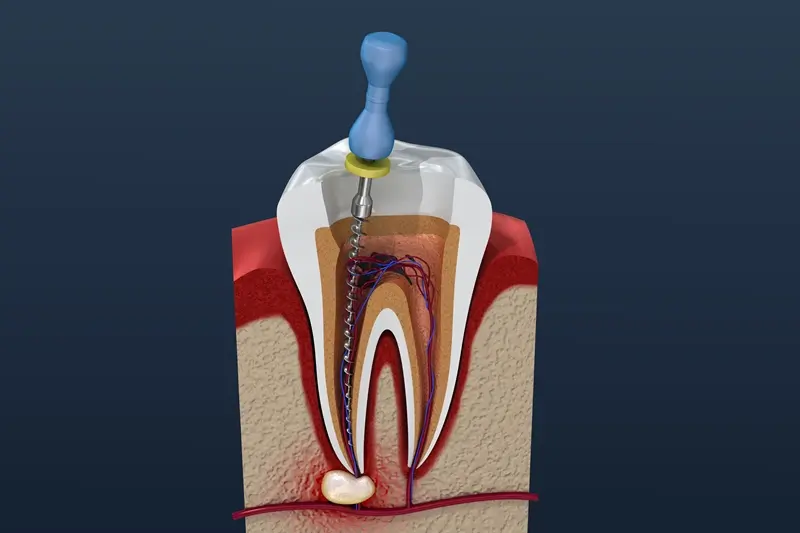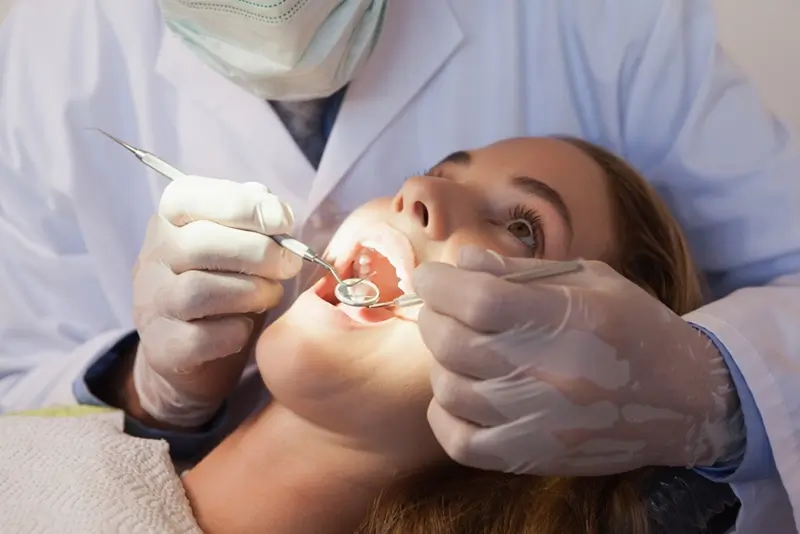If you’ve heard it once, you’ve heard it a thousand times: Brushing and flossing – at least two times a day – is indispensable to your oral health. In combination with visiting the dentist for twice-a-year cleanings, you can better protect your smile from cavities and a variety of other issues. In short, these are smart, well-known strategies that are both defensive and preventive.
However, what you may not realise is where minimally invasive dentistry fits into the oral health equation. Even though most people do brush and floss regularly, dental caries has long been the most common chronic disease for people regardless of their age, according to the World Health Organization. So, what actually is minimally invasive dentistry and what can it do for you?
Minimally invasive dentistry is a slightly more advanced form of dental care that serves as an extra layer of protection for your teeth. Whether it’s through fissure sealants or Fluoride treatment, minimally invasive dentistry helps to root out diseases so they can be prevented entirely or intercepted so the problem doesn’t get worse. Also referred to as microdentistry, minimally invasive is increasing in popularity both among dental offices that provide it as well as patients that actively seek it out because it helps to keep teeth as healthy as possible for as long as possible. It also reduces the chances of more advanced treatments that are invasive, such as root canals and drillings. These types of dental services are sometimes unavoidable and can lead to tissue loss when they’re needed routinely over time, which can weaken the structural integrity of the problematic tooth or teeth.
 Preventative dentistry can help you avoid more invasive treatment like root canals.
Preventative dentistry can help you avoid more invasive treatment like root canals.2 in 5 children have tooth decay
While minimally invasive is optional, it’s a service that just about everyone should consider, given the frequency of tooth decay among children and adults. According to research recently published in the New Zealand Journal, roughly 40% of preschoolers in Northland and Auckland have tooth decay, or what is known as “caries” in the dentistry profession.
One of the ways preventative dentistry can address tooth decay is through something called CAMBRA, which stands for Caries Management By Risk Assessment. CAMBRA is an evidence-based approach to treating dental caries as soon as it starts to make itself apparent. Classic symptoms include continuous pain, sensitivity to cold or hot food and drink, halitosis (bad breath) and black spots that may be noticeable upon closer inspection by your dentist during cleanings.
CAMBRA is a fairly new approach to treating teeth. For years, dentistry was largely reactive, where once signs of caries were noticeable, fillings provided the fix after drilling and cleaning away the decayed part of the tooth. While this approach is still effective, it often serves as a Band-Aid on the problem because it doesn’t address what caused the decay in the first place. This is part of the reason why fillings may need to be replaced.
CAMBRA is a more customised approach to preventative dentistry. As such, it’s difficult to say with precision what’s needed to prevent caries from worsening. It starts with identifying your caries risk, which is measured on a scale basis: low, moderate, high or extreme. Naturally, the extensiveness of the preventative treatment necessary is determined by where you are on this scale.
 Minimally invasive dentistry can make cleanings go more quickly and smoothly.
Minimally invasive dentistry can make cleanings go more quickly and smoothly.Consider fissure sealants
Another type of minimally invasive dentistry is through the use of fissure sealants. Also known as dental sealants, these are resin coatings that are situated around the portions of the teeth that are grooved. Portions of your teeth are smooth, but they also have microscopic pits, which make them more difficult to reach and clean thoroughly via traditional methods like brushing and flossing. And even when you can reach them, the bristles themselves may be too large to properly reach these small areas.
Fissure sealants help to solve this predicament. The resin liquid basically fills in between the gaps of your teeth so bacteria can’t find its way inside. This not only makes it easier to clean your teeth fully but by extension reduces the susceptibility to tooth decay that comes through food and beverages. Sugary drinks, sweets and other foods high in sugar are typically the biggest contributors to cavity formation. Fissure sealants are ideal for children as well as adults and have proven to be equally effective in caries prevention.
You only have one set of teeth. Keeping them clean and healthy for as long as possible requires a smart strategy that starts with you and is optimised by scheduling regular in-office cleanings and following their recommendations. City Dentists specialises in preventative dentistry and several other services that can keep your pearly whites gleaming. Contact us today to schedule an appointment.
